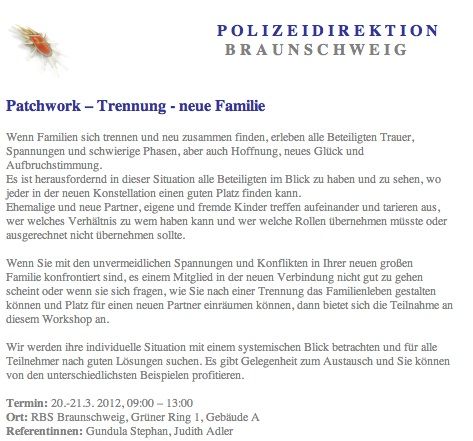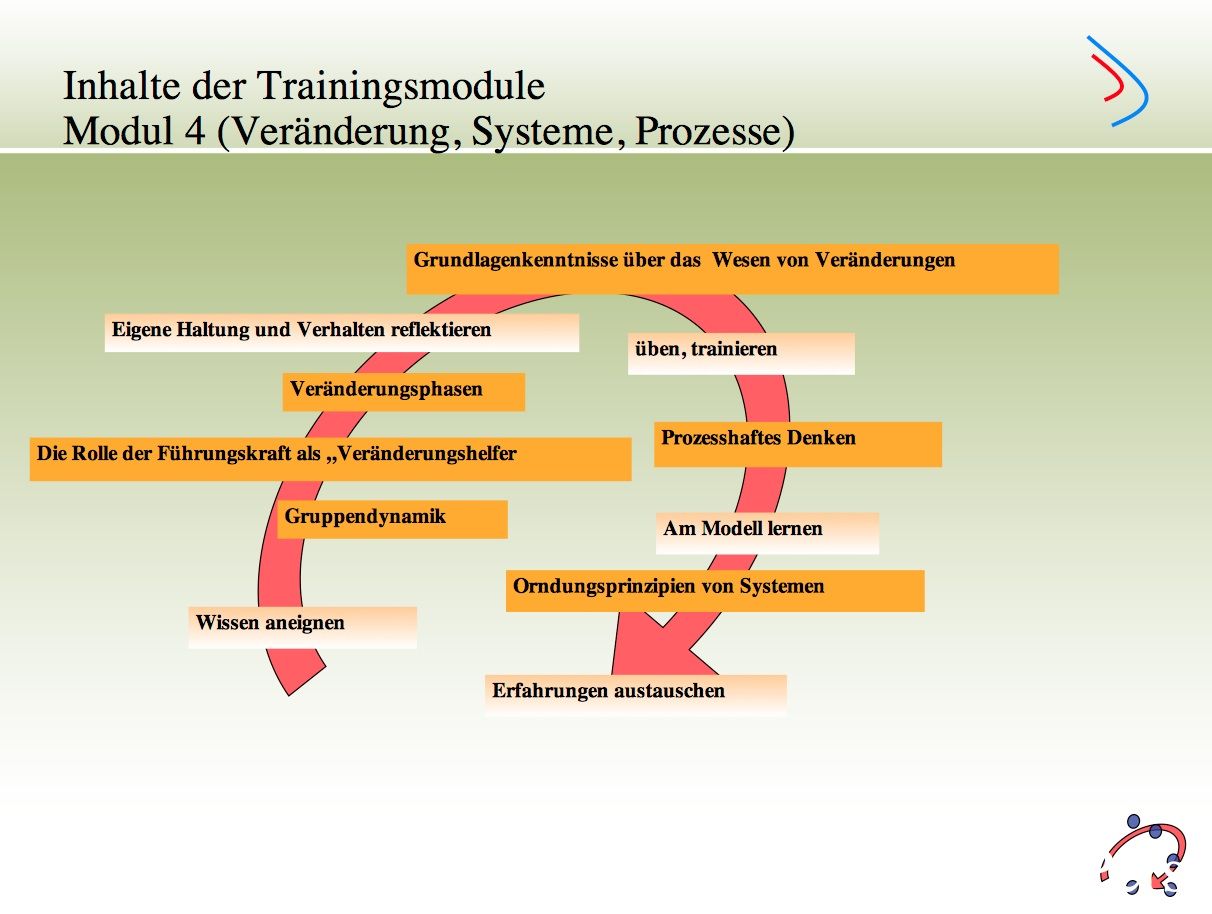A bottom-up process
The offer for the employees of the Police Department Brunswick is probably a ray of hope in the civil service. A small, visionary team developed a holistic program with model character. The internal reform process in the Lower Saxony Police started in 1994. As part of this police reform, openness was created for other unusual innovations. That cleared the way for a few dedicated employees who wanted to bring organizational development and coaching processes to their workplace.
The small team of policemen fetched inspiration for the new process externally. The idea was to bring together a team of trainers from a stress and conflict managing program to create a center for management training and coaching. The model of the Volkswagen subsidiary VW-Coaching was an additional suggestion; the team went into the neighboring Wolfsburg and got inspired by the methods of the Volkswagen subsidiary.
With the backing of the top boss, the impressions of VW-Coaching, and several Train-the-Trainer courses, gradually the Brunswick police began to transfer some of these methods into their own system. An important fact was the open learning process. An ongoing question arose: What does and does not suit the police work culture? The new “Coaching Centre” in Braunschweig began, among other things, with management training and further instruction offers for personal and social skill development.
This kind of development of the Police Department Brunswick was not dictated from above, but was a real bottom-up process. The strategy was not imposed on the police officers, but originated out of the organization. A few recognized the needs of many, began to meet those needs as well as possible, and developed new solutions.
It is almost needless to say that those innovations met a lot of resistance. The underlying theme was: those soft issues have nothing to do with policing; those (employees) part of the program better do service on the street. It took quite some time for the staff of the Police Department, to answer one simple question: “What do we get out of this?” For the implementation of the reform model, it was important, that all intern consultants and trainers were “real” policemen with sufficient field practice. Only this equips them with the understanding of the daily challenges of their colleagues.
After a successful start-up phase, the Brunswick behavioral trainers continued with additional individual qualifications. Its core competencies are crisis intervention, trauma, mediation, conflict management, supervision, systemic consulting, Emotional Competencies training, and others.
Shortly after the establishment of this Trainings Centre, it became tragically apparent that further education was necessary. Therefore, the program had to expand. After the ICE (train) accident in Eschede in 1998, about 100 people lost their lives and many more were injured. After this event, it quickly became apparent how important follow-up care (briefing) was for colleagues after a traumatic incident. An especially positive aspect of the Brunswick service is that all those internal consultants who give a helping hand in those stressful situations also work in “regular” training and consultant sessions with their coworkers. Confidence- and trust-building measures between trainers and participants are hardly necessary anymore.
Today, the training offer at the Brunswick Police Department is very broad. It covers not only issues arising at work, but also in the employees’ private sphere. Like in all other parts of society, the police department has the same issues with addiction, depression, excessive demands, and similar disorders. On top of that comes the taxing shift work which affects employees socially.
Many of the policemen look back on unsuccessful relationships. Patchwork families are increasingly common. The internal trainers accommodate those sensitive issues as well, and provide Systemic Constellation for their coworkers.
The acceptance of the 2.900 employees of the police department confirmed the path of the initiators. In the police department, the courage for reform coincides with an experimental character. Today the Regional Advisory Board is the successor of the Trainings Centre and a central part of a holistic health management. The chief of police, as well as all the other leaders, remains committed to the innovations, of which conditions they have permitted. Staff representatives support those processes. Even years after the program started, there is still courage and passion for new programs which are well attended by employees at all levels. It can happen that a 60-year-old police chief starts a Tai Chi course.
The persistence of the Brunswick reform team flourished. This was also recognized by the outside world. After three years of success, the Brunswick model had become so well known that in 2000 the police in Lower Saxony established so-called “Local Counselling Centres.” They all operate according to the Brunswick training center. Amazingly, the idea of one courageous team changed policing for the entire province.

